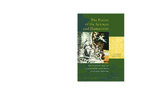The Future of the Sciences and Humanities
Four Analytical Essays and a Critical Debate on the Future of Scholastic Endeavour
| dc.contributor.author | McAllister, James | |
| dc.contributor.author | Benthem, van, Johan | |
| dc.contributor.author | Rip, Arie | |
| dc.contributor.author | Philipse, Herman | |
| dc.contributor.editor | Verrijn-Stuart, A.A. | |
| dc.contributor.editor | Tindemans, P.A.J. | |
| dc.contributor.editor | Visser, R.P.W. | |
| dc.date.accessioned | 2010-12-31 23:55:55 | |
| dc.date.accessioned | 2019-12-10 14:46:32 | |
| dc.date.accessioned | 2020-04-01T15:33:46Z | |
| dc.date.available | 2020-04-01T15:33:46Z | |
| dc.date.issued | 2002 | |
| dc.identifier | 340241 | |
| dc.identifier | OCN: 302363448 | |
| dc.identifier.uri | http://library.oapen.org/handle/20.500.12657/35105 | |
| dc.description.abstract | The arts and sciences evolve by specialisation and broadening of their scopes. Much innovation results from unusual combinations of views and techniques originating in widely different domains. However, stepping outside an established discipline entails the danger of 'shallowness', even if the primary challenge was a 'deep' integration problem. Acceptance of new departures requires recognition and understanding of what is involved, and this depends, among other things, on the adopted nomenclature of the insiders and the resulting perception by outsiders.Thus, current ways of referring to varieties of research and study - say, 'sciences' vs 'humanities' - often form obstacles to the appreciation of novel approaches. New views are necessary. But which angles must be considered? | |
| dc.language | English | |
| dc.subject.classification | thema EDItEUR::Q Philosophy and Religion::QD Philosophy | en_US |
| dc.subject.other | philosophy | |
| dc.subject.other | filosofie | |
| dc.title | The Future of the Sciences and Humanities | |
| dc.title.alternative | Four Analytical Essays and a Critical Debate on the Future of Scholastic Endeavour | |
| dc.type | book | |
| oapen.abstract.otherlanguage | Ter gelegenheid van haar 250-jarig bestaan organiseerde de Hollandsche Maatschappij der Wetenschappen (opgericht in 1752) in 2001 een Prijsvraag met als onderwerp The Future of the Sciences and Humanities. Deelnemers werd gevraagd hun licht te laten schijnen over de toekomst van de Wetenschap, vooral vanwege de steeds verdere verbreding en wederzijdse overlap van de meest uiteenlopende disciplines. Vier inzendingen werden bekroond: de bijdragen van James McAllister, Johan van Benthem, Arie Rip en Herman Philipse vormen de basis voor een kritisch debat over de toekomst van het interdisciplinair onderzoek. Onder de titel The Future of the Sciences and Humanities brengt Amsterdam University Press in mei 2002 een prachtige jubileum-uitgave uit voor de Hollandsche Maatschappij der Wetenschappen waarin de vier bekroonde essays en een samenvatting van het debat gebundeld zijn. De uitgave staat onder redactie van P.A.J. Tindemans, A.A. Verrijn-Stuart en R.P.W. Visser. | |
| oapen.identifier.doi | 10.5117/9789053565667 | |
| oapen.relation.isPublishedBy | dd3d1a33-0ac2-4cfe-a101-355ae1bd857a | |
| oapen.pages | 242 |

